• Study Abroad Guidance
Entrance exams to study in Canada
12688 Reads
3 min Read
- Entrance exams are a mandate to kick-start your Canadian dream.
- English Proficiency score is an essential factor which can flag off or approve your academic journey.
- Specialized exams like GMAT, LSAT, MCAT, etc. are required to opt for certain institutions or programs in Canada.
- Few Canadian institutions also require French Proficiency from international students. It is examined by exams such as TFI.
Canada is a popular study-abroad destination among international students for its advanced education system, modern infrastructure, scenic landscapes and cultural diversity. In order to apply for education here, it is important for students to be well aware of all the admission requirements, including the standard entrance exams they need to clear before making an application.
But what exams need to be cleared and how to prepare for them? Relax! The below write up answers all the questions. We will delve into the different categories of entrance exams and the key differences between all of them to make this Canadian adventure a little easier for the little enthusiasts.
Before learning about the entrance exams to study in Canada, let's explore the compelling reasons on why one should study in Canada.
Top Reasons to Study in Canada
Canadian universities are among the world's top institutions, offering internationally acclaimed education and worldwide recognized degrees. When an international student graduates from a Canadian institution, it is a symbol of trust and quality. Some of the reasons to study in Canada include:
- Canada boasts a high standard of living, and international students enjoy the same rights and freedoms as Canadian citizens.
- Canadian tuition fees are generally lower than those in Australia, the U.K., and the U.S. Plus, you can access scholarships and work opportunities to help pay for your education.
- Beyond academics, Canada offers a rich cultural experience.
- Canadian universities are among a few of the top-ranked institutions globally.
- Canada offers ample networking opportunities to international learners and helps them build industry connections.
Entrance Exams Required to Study in Canada
To study in Canada, students must have IELTS, TOEFL, or PTE results. Aside from that, depending on the course and university you choose, results from several other examinations, such as the GRE, GMAT, and SAT, may be required. There are certain entrance exams for studying in Canada.
These entrance exams fall into three categories: -
English Language Entrance Exams
The English language requirement is one of the most significant aspects of studying in Canada. International students whose native language is not English are needed to take one of the following English language tests.
| International English Language Testing System (IELTS) | IELTS is a widely accepted English proficiency test that evaluates a candidate's reading, writing, listening and speaking abilities. The test is for both study (IELTS Academic) and work & residency (IELTS General Training) purposes. Canadian Universities often require a minimum score of 6.5, with individual band requirements varying. |
| Test of English as a Foreign Language (TOEFL) | This is one of the popular English proficiency tests conducted by ETS (Educational Testing Services). Designed to measure a candidate's four academic skills: listening, reading, writing and speaking. Aim for a minimum score of 90-100, depending upon the university requirements. TOEFL is offered in both paper and internet-based formats. |
| Pearson Test of English (PTE) | The PTE is a recently introduced English proficiency test in Canada. It is computer-delivered and assesses skills similar to IELTS and TOEFL. The score depends on individual university requirements. |
| Duolingo score | The Duolingo exam is an English language assessment that measures your reading, writing, speaking, and listening abilities in the language. Compared to other language tests, it is less expensive and more convenient, and the results are available quickly. |
Major Differences Between the English Language Entrance Exams
Among all these English proficiency exams, students can opt for the exams their host country and institution requires and are best suited to their individual needs. The following table highlights the key differences between the English language tests required for entrance to Canadian Universities: -
| Feature | IELTS | TOEFL | PTE | Duolingo |
| Format | Paper & Computer-based | Computer-based only | Computer-based only | Computer-based only |
| Duration | 2 hours 40 Minutes | 4 hours | 2 hours | 1 hour |
| Score Scale | 9 Band Scale | 0-120 points | 10-90 points | 10-160 points |
| Approximate cost (INR) | 17,000 - 17,500 | 16,800- 17,000 | 17,000-17,200 | 3000- 4,000 |
| Pros | Flexible test dates, human interaction in speaking test | Familiar with US admissions | Convenient and faster results | Affordable and faster results |
French Language Entrance Exam Requirements
French is the language of teaching at a number of universities in Canada. Quebec is the most popular city in Toronto that uses this language for training. In reality, the majority of their courses use French as the primary language of instruction. Similar to the notion of English language tests, students who do not have French as their primary language must take a set of French language examinations.
The Test de François International is the most often utilized French language test in Quebec. In contrast, most French institutions will administer one of three examinations issued by the French Ministry of Education (DILF/DELF/DALF).
The TFI is broken into two sections: hearing and reading comprehension. You will be asked to do a variety of activities, including completing sentences and answering questions based on recorded speech.
Academic Entrance Exams Required to Study in Canada
Other than these, there are few standardized tests which students need to take before opting for certain programs in Canada. These exams test your existing knowledge about the subjects you are opting for, and help institutions have a better understanding of the international students they are welcoming. Here are some of the popular entrance exams for admission into a Canadian academic institute:
| Graduate Record Examinations (GRE) | It is a popular academic exam for students planning to pursue graduate studies abroad. It is a standard test for admission as this helps universities or colleges to evaluate the knowledge of students for advanced education. The test is conducted in two ways. The GRE General test assesses verbal & quantitative reasoning, critical thinking, and analytical writing skills not related to any specific discipline, whereas the GRE subject test weighs a student's knowledge in one particular subject like Chemistry, Mathematics, Physics, and Psychology. |
| Graduate Management Aptitude Test (GMAT) | As the name suggests, GMAT is conducted to assess the abilities and knowledge of students who wish to pursue post-secondary education in Business or Management in Canada. It is a computer-based test designed to check the analytical, writing, quantitative, verbal and reading skills of potential MBA aspirants planning to study in an English-speaking country. |
| Scholastic Assessment Test (SAT) | The SAT is a paper-pencil-based aptitude test designed to assess candidates' written, verbal, and calculative skills. It is an important admission test for students who aspire to study undergraduate courses abroad, particularly in Canada and the USA. |
| Medical College Admission Test (MCAT) | The MCAT is a computer-based test that examines a candidate's analytical and critical abilities, knowledge of physical and biological sciences, and verbal reasoning. While most medical colleges require an MCAT score for a medical degree like MBBS in Canada, applicants with three or more years of experience may exempt themselves from these scores. |
| Law School Admission Test (LSAT) | This is a standardized test essential for students who plan to apply for a course in Canadian law school. This certifies a candidate's expertise in reading and verbal skills. On average, law schools in Canada demand an LSAT score of 160 or above. Schools and institutions may mandate that the LSAT be taken only during a specified timeframe. There may also be a cut-off period. This indicates that LSATs taken after the stated time period may not be accepted. |
Conclusion
International students have always regarded Canada as a desirable place for higher education. During the application procedure, be sure to meet the requirements for the above-mentioned entrance exams. For further information, see Canada's entrance requirements.
Knowledge of these tests undoubtedly builds the foundation for admission into a university abroad, but it is not the only important aspect of making an application. To learn more about the application process and apply to your favorite institute in Canada, connect with the study abroad consultants at Canam today!
FAQ
Get great articles direct to your inbox
The latest news, articles, and resources, sent straight to your inbox every month.
Popular Universities to Study Abroad
World class education waiting for you.
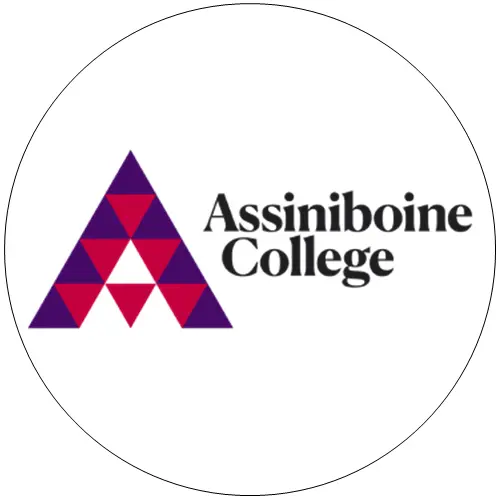
Assiniboine Community College - Winnipeg Campus
Manitoba, Canada • 1 Programmes
Tuition Fee : CAD 18000-18500 / year
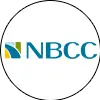
New Brunswick Community College - St. Andrews Campus
New Brunswick, Canada • 25 Programmes
Tuition Fee : CAD 10500-11000 / year
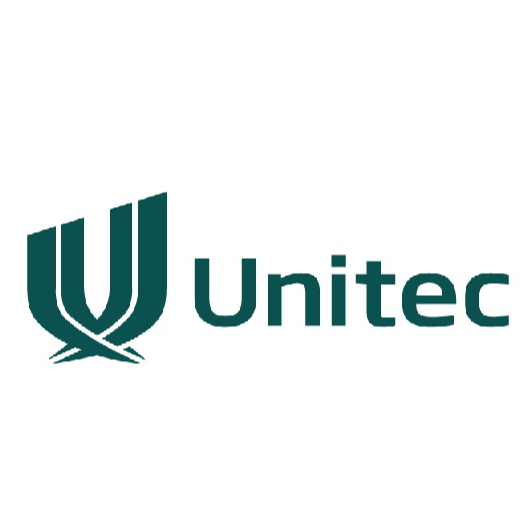
Unitec Institute of Technology - Mt Albert Campus
Auckland, New Zealand • 61 Programmes
Tuition Fee : NZD 19950-24000 / year
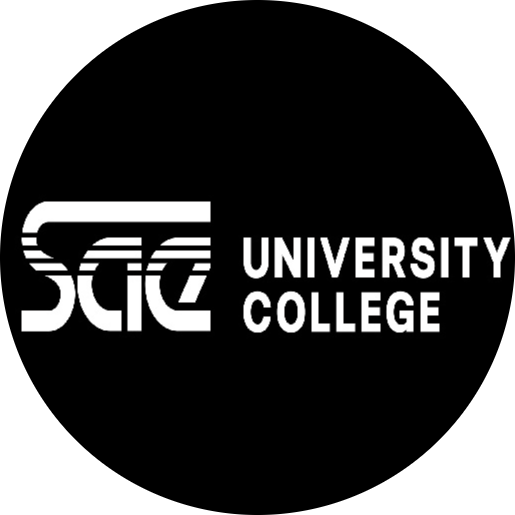
Navitas Group - SAE University College - Perth Campus
Western Australia, Australia • 25 Programmes
Tuition Fee : AUD 27500-33000 / year
.webp)
Education Centre of Australia (ECA) Group - ECA College - Melbourne Campus
Victoria, Australia • 6 Programmes
Tuition Fee : AUD 0-0 / year

MESOS Business School - Bordeaux Campus
Nouvelle-Aquitaine, France • 5 Programmes
Tuition Fee : EUR 6000-6000 / year
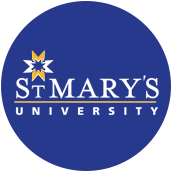
-modified-(3).webp)
College De Paris - Montpellier Campus
Occitanie, France • 3 Programmes
Tuition Fee : EUR 9000-9500 / year
Popular English Language Proficiency Exams
Blogs and Articles
Curated content to keep you updated on the latest education trends, news and more.
Updated on • Jul 17,2025 05:33 PM IST • USA
PTE Accepted Universities in Australia
Updated on • Jul 17,2025 05:09 PM IST • PTE
Part-Time Jobs for International Students in Australia
Updated on • Jul 17,2025 03:44 PM IST • Australia
Updated on • Jul 12,2025 04:02 PM IST • USA
Updated on • Jul 11,2025 11:32 AM IST • Education
CPT vs OPT: Meaning, Difference, and How to Apply
Updated on • Jul 11,2025 10:40 AM IST • USA
Masters in Computer Science in UK: Top Colleges, Eligibility, Scholarships
Updated on • Jul 10,2025 11:29 AM IST • study in the UK
Highest Paying Jobs in the World
Updated on • Jul 08,2025 01:40 PM IST • Study Abroad
MBA in Australia for Indian Students: Best Universities, Requirements, Scholarship, Courses, Jobs
Updated on • Jul 08,2025 01:35 PM IST • Australia
Canada vs Australia: Which Country is Better for Indian Students in 2025?
Updated on • Jul 07,2025 12:46 PM IST • Education
France vs Germany: Which Is Better for International Students?
Updated on • Jun 30,2025 05:15 PM IST • Education
Top 10 Agricultural Universities in USA
Updated on • Jun 27,2025 05:25 PM IST • USA
Most In-Demand Future Careers in 2025
Updated on • Jun 26,2025 04:41 PM IST • Education
How Much Do Nurses Make in the U.S.?
Updated on • Jun 23,2025 03:59 PM IST • USA
Updated on • Jun 21,2025 02:00 PM IST • USA
MBA in UK: Universities, Eligibility, Types, and Career Opportunities
Updated on • Jun 19,2025 04:09 PM IST • UK • study in the UK
Scholarships in France for Indian Students
Updated on • May 29,2025 05:22 PM IST • France
Intakes in Dubai for Indian Students
Updated on • May 27,2025 03:34 PM IST • Study in Dubai
France Student Visa 2025 – Requirements, Fees, Checklist & Application Process
Updated on • May 23,2025 03:36 PM IST • France
MBA in France for Indian Students in 2025
Updated on • May 22,2025 05:35 PM IST • France
Related Blogs and Articles
A little effort to provide an authentic and reliable content for keen readers!!
What is GPA? A Complete Guide for Students and Parents
Updated on • 01-05-2025 • Study Abroad Guidance
Backlog Certificate: A Complete Guide
Updated on • 11-04-2025 • Study Abroad Guidance
What if Your Visa Gets Rejected?
Updated on • 27-02-2025 • Study Abroad Guidance
What is the difference between CV and Resume?
Updated on • 31-01-2025 • Study Abroad Guidance
Study Abroad: Physiotherapy Guide
Updated on • 25-10-2024 • Study Abroad Guidance
Updated on • 19-10-2024 • Study Abroad Guidance
Best Cities to Study in Switzerland
Updated on • 29-08-2024 • Study Abroad Guidance
How to Make the Most of Your Study in Canada Experience
Updated on • 25-01-2024 • Study Abroad Guidance
How to Make Friends When Studying Abroad
Updated on • 15-09-2023 • Study Abroad Guidance
How is Artificial Intelligence Revolutionising Global Education?
Updated on • 14-09-2023 • Study Abroad Guidance
Health Tips for Students Studying Abroad
Updated on • 12-09-2023 • Study Abroad Guidance
13 Steps for Students Aspiring To Study Abroad
Updated on • 12-09-2023 • Study Abroad Guidance
Things to Do and Student lifestyle in Canada
Updated on • 11-09-2023 • Study Abroad Guidance
Education Agents -Work ethics, Trust and Obligations
Updated on • 04-09-2023 • Study Abroad Guidance
How to Write a Scholarship Essay?
Updated on • 21-08-2023 • Study Abroad Guidance
Resume format for Freshers: Tips, Types, and How to choose
Updated on • 17-08-2023 • Study Abroad Guidance
Top Cities to Study in Germany
Updated on • 07-08-2023 • Study Abroad Guidance
Top 10 careers after Studying in USA
Updated on • 07-08-2023 • Study Abroad Guidance
Role & Importance of an Overseas Education Consultant
Updated on • 24-07-2023 • Study Abroad Guidance
How Studying Abroad Can Change You in Your Twenties
Updated on • 19-07-2023 • Study Abroad Guidance












